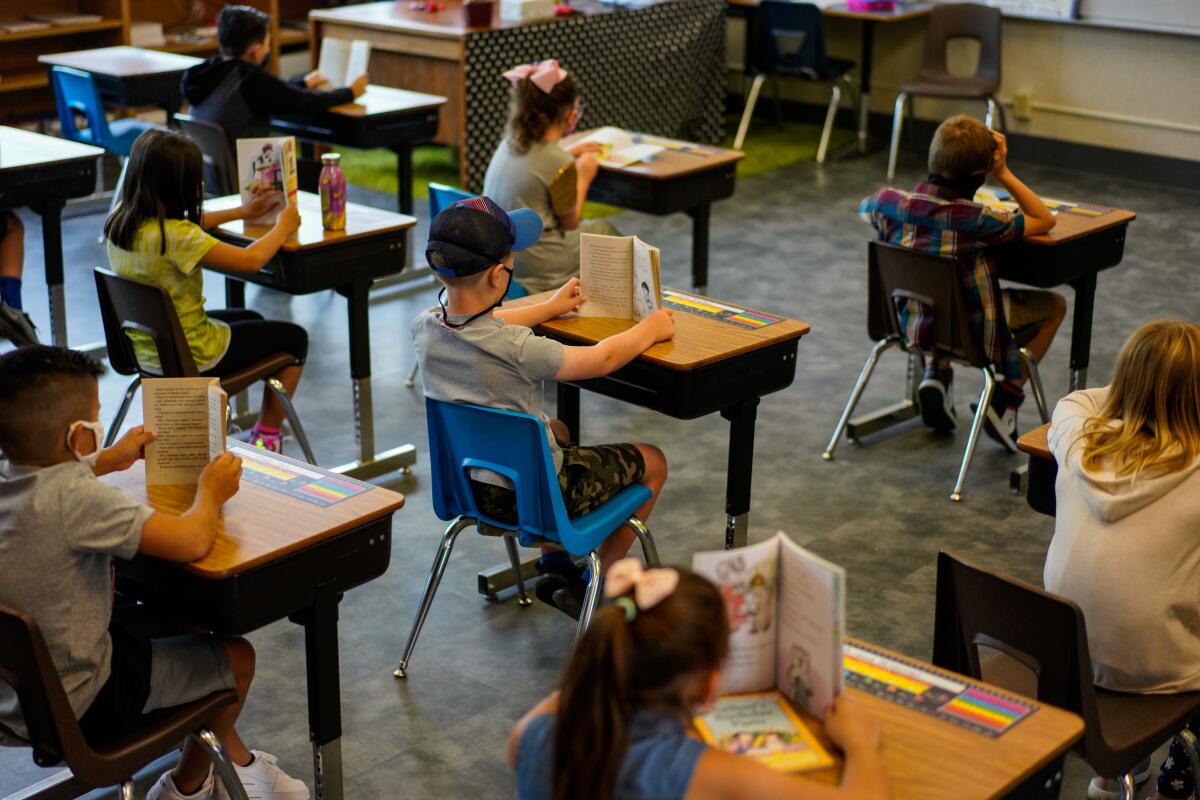Letters to the Editor: How can teachers help kids glued to their phones learn to read?

- Share via
To the editor: Your editorial on reforming reading instruction highlighted what a disaster “whole language” has been for literacy in our public schools.
This movement decades ago to step away from tried and true fundamental skills in all subject areas from reading to math brings us to today’s crisis. The reintroduction of phonics into literacy education will only go so far to address the issue.
An overwhelming number of elementary school children have their faces buried in their phones instead of a book.
Literacy education is a shared responsibility between the school and the home. If children are not reading daily outside school hours, all the phonics instruction in the world will not improve the situation.
Jason Y. Calizar, Torrance
..
To the editor: Phonics instruction alone does not lead to significant improvement in reading skills. Rather, a combination of whole-language instruction with phonics support as needed provides a win-win opportunity for our students.
Competent teachers build on students’ backgrounds and real-world interests in order to encourage lifelong reading. They also share their own love for reading by reading aloud with students, as well as supporting students’ individual needs.
I encourage all educators and community members to examine, discuss and then implement current peer-reviewed research on reading.
Susan Kogan, Oceanside
The writer is a retired teacher and administrator in the Los Angeles Unified School District.
..
To the editor: Your editorial in favor of implementing an updated kind of phonics instruction in California schools would be more convincing if California hadn’t already spent the past 25 years, well, implementing phonics instruction.
The state radically altered its elementary education teaching credential in the late 1990s to require intensive phonics instruction. LAUSD and other large school districts have spent hundreds of millions of dollars since then on systematic phonics programs such as Open Court.
Are you now saying phonics hasn’t “really” ever been tried?
The most rigorous peer-reviewed survey of classroom studies on early reading, published by English psychology professor Jeffrey Bowers in 2020, showed that phonics is in fact no better than other methods in helping kids to learn to read.
So sure, let’s dump even more money into those tried-and-failed phonics worksheets.
Jeffrey McQuillan, Los Angeles
The writer is a former associate professor of education at Cal State Fullerton who specializes in literacy and language acquisition.
..
To the editor: Sounding out the letters may improve reading ability. The next step is to advocate improved spelling so the individual letters make sense.
For example, your editorial contains this sentence: “That’s all good. It’s also not enough. Try sounding out that last word phonetically. It should be “enuf.”
It is time now to get around to the spelling reforms advocated by President Theodore Roosevelt in 1906, Noah Webster in 1806 and Benjamin Franklin in 1768.
Reed Webb, Temecula



